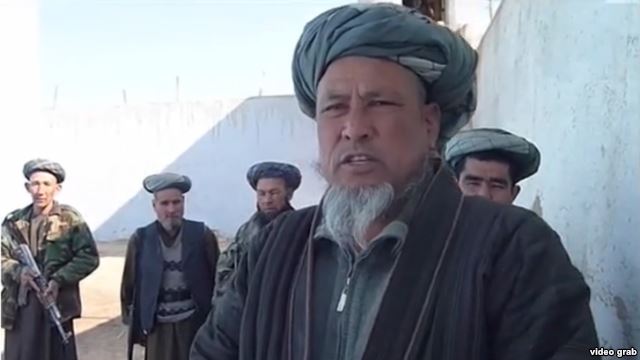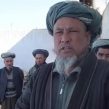
Amid Rising Regional Tensions, Turkmenistan Reevaluates Neutrality Policy
Publication: Eurasia Daily Monitor Volume: 12 Issue: 47
By:

For the last two decades, Turkmenistan has adhered to a foreign policy of strict neutrality. But the drawdown, in neighboring Afghanistan, of the International Security Assistance Force (ISAF) mission has coincided with the appearance of Islamic State (IS) militants in that war-torn country. The two factors have combined to compel Turkmenistan to reinforce its troops along its 462-mile border with Afghanistan (see EDM, February 26, 2014), in addition to recently hosting a North Atlantic Treaty Organization (NATO) regional security conference.
In 1995 the United Nations General Assembly formally recognized Turkmenistan’s neutrality (“Permanent neutrality of Turkmenistan,” December 12, 1995, A/RES/50/80, A-B: 90th plenary meeting). Regional events, however, have recently caused Ashgabat to solicit international perceptions of Central Asia’s evolving strategic dynamics, causing Turkmenistan to cautiously reach out to potential foreign partners, despite this country’s neutralist policies.
On March 2–3, a conference titled, “Issues of peace and stability in Central Asia and Afghanistan: a view from neutral Turkmenistan,” was held in Ashgabat and organized by Turkmenistan’s government in conjunction with the NATO Liaison Office for Central Asia. The conference was the fourth NATO-sponsored event marking the 20th anniversary of the Alliance’s Partnership for Peace (PfP) program with post-Soviet Central Asian partner countries. Significantly, the conference was included in Turkmenistan’s official program celebrating the “Year of Neutrality and Peace,” on the 20th anniversary of the UN General Assembly resolution recognizing Turkmenistan’s neutrality (NATO Newsroom, March 2–3). Experts and officials from Afghanistan, Kazakhstan, Kyrgyzstan, Tajikistan, Uzbekistan and the United States attended, along with representatives of the UN Regional Center for Preventive Diplomacy for Central Asia, the UN Development Program (UNDP), the European Union, and the Organization for Security and Cooperation in Europe (OSCE). Russia was the only major regional player absent from the event (Turkmenistan.ru, March 6).
The border between Turkmenistan and Afghanistan has become increasingly restive, with the government in Ashgabat seeking to lessen tensions by using discreet diplomacy to appeal to ethnic-Turkmen in northwestern Afghanistan. On February 18, Radio Free Europe/Radio Liberty’s Turkmen service reported that earlier in the month, Turkmenistan’s Deputy Foreign Minister Vepa Hajiyev headed a government delegation to conduct secret negotiations with ethnic-Turkmen elders living in Afghanistan. Hajiyev’s diplomatic mission sought to ensure the amity of ethnic Turkmen residing in the border regions and dissuade them from taking up arms with the Taliban.
According to a Turkmen opposition website, in mid-February, nine citizens of Turkmenistan were detained by the National Security Ministry (NSM) and military counter-intelligence in Tejen, about 125 miles south-east of Ashgabat. There, Turkmenistan’s security forces reported the presence of followers of “non-traditional Islam.” The NSM reportedly suspects the men of having ties to Afghan militants and planning terrorist attacks in Ashgabat and Tejen (Chrono-tm.org, March 8).
On February 26, Afghan militants crossed into southern Turkmenistan from Afghanistan’s Badghis province, killing three Turkmenistani border guards and injuring two others in the Tora Shaikh region. This deadly firefight occurred several weeks after Turkmenistani border guards killed one Taliban fighter and detained two others (Central Asia Online, March 5).
The altered strategic situation that Turkmenistan currently faces in its relations with Afghanistan was underlined on March 4–5. That night, Afghan Taliban forces battling the Afghan National Army (ANA) destroyed a power line pylon in Dawlat Abad district, which transmits electricity produced in Turkmenistan through Afghanistan’s Faryab province. According to Andkhoy district chief Sultan Sanjar, while the line would be restored, it was the first time the Taliban had attacked a civilian infrastructural facility in northern Afghanistan (12 News.uz, March 5).
If Turkmenistan does decide to modify its neutral stance in light of this changing regional security environment, it will not come as a surprise to the Russian government—Ashgabat takes great pains to keep the Russian media informed of its activities. On February 26, Turkmenistan’s embassy in Moscow continued its policy of regular meetings with representatives of the Russian media. Those in attendance included journalists from the RTR and Mir broadcasting companies, representatives of the administrative board of the Russian Union of Journalists in Moscow, as well as journalists from the newspapers Trud, Tribuna, Kultura, Tverskaia 13, Rossiiskaia Gazeta, Vlastnaia Vertikal Federatsii, Parlamentskaia Gazeta and Rossiiskaia Federatsiia Segodnia Magazine (Turkmenistan.ru, February 26). The theme of the meeting was the twentieth anniversary of Turkmenistan’s permanent neutrality status and its influence on all aspects of the Central Asian republic’s domestic and foreign policy.
But even though Turkmenistan is reassuring Russia that its overall policy of neutrality remains paramount for the moment, the fact that Ashgabat recently hosted a NATO colloquium—particularly, in light of Russia’s deteriorating relations with the Alliance over Ukraine—is quite significant. Turkmenistan has chosen not to join the Russia-dominated Collective Security Treaty Organization (CSTO) and has only “guest” status within the Shanghai Cooperation Organization (SCO). Yet, the country is more actively participating in a number of international meetings on Central Asia. Recent diplomatic endeavors have included Ashgabat’s participating in the Ninth Senior Officials’ Meeting of the “Central Asia Plus Japan” Dialogue (CAJD), held on March 4, in Tokyo, along with delegations from Kyrgyzstan, Tajikistan, Uzbekistan and the Special Representative for Central Asia and the Caucasus of Japan’s Ministry of Foreign Affairs. Among the topics under discussion were combating international terrorism, religious extremism and drug trafficking, as well as strengthening state border control regimes (AKI Press News Agency, March 6).
As the future long-term political stability of Afghanistan is now complicated not only by a resurgent Taliban, but IS militants as well, Turkmenistan is prudently reinforcing its southern frontiers and discreetly sounding out international forums on regional security. Turkmenistan’s emergence on the international stage to discuss transnational threats from terrorism, religious extremism or drug trafficking is undoubtedly welcomed by its neighbors in the post-Soviet space. But it remains to be seen whether Turkmenistan’s neighbors might at some point be willing to commit military forces to preserve this Central Asian republic’s neutrality, if the regional situation worsens.




